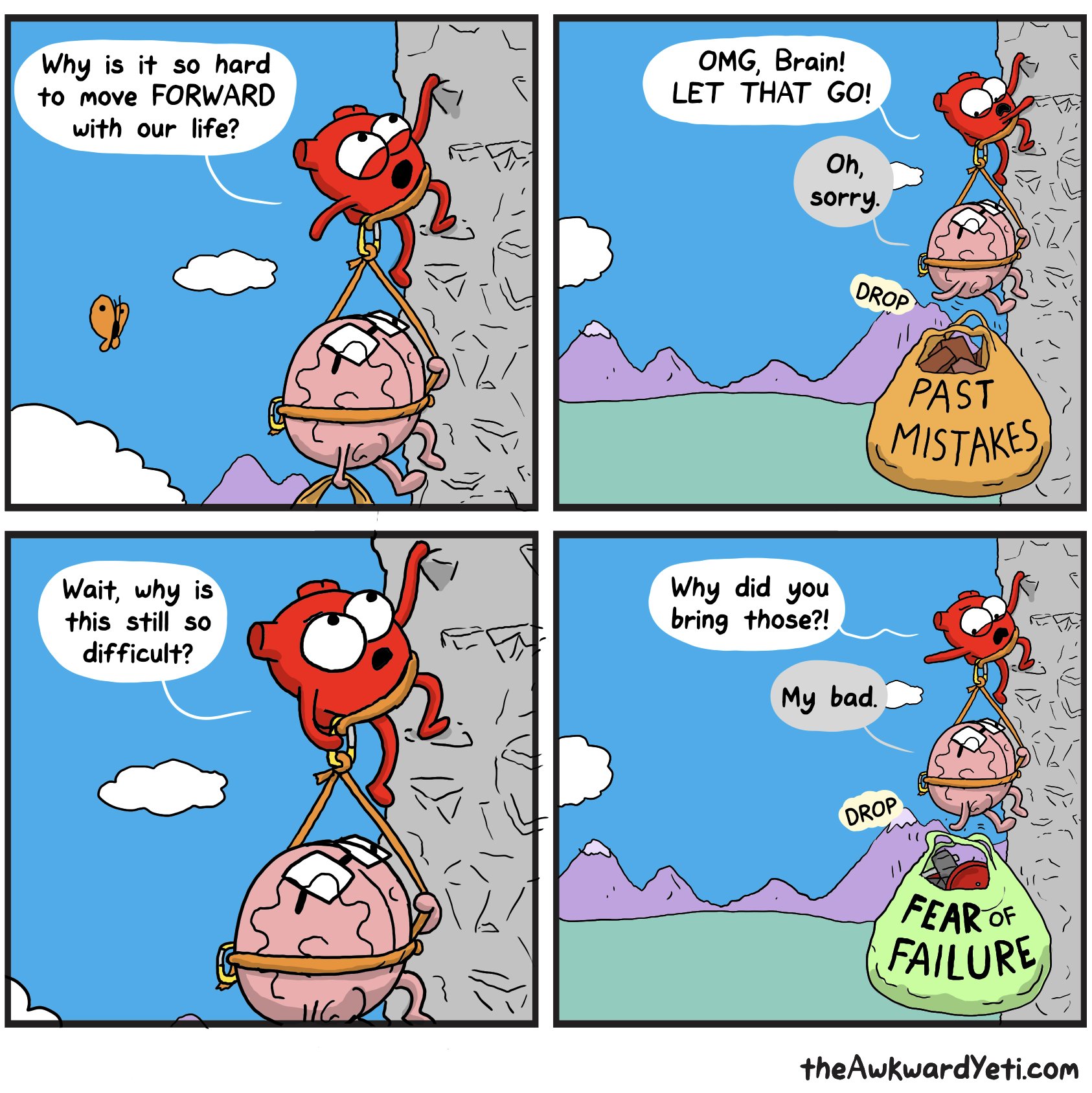Where Perfectionism Exists, Shame is Always Lurking
I used to take pride in being a perfectionist.
I was the straight-A student, the one who checked everything twice (maybe five times), and never submitted anything less than flawless. I thought it meant I was responsible, driven, and admirable. But beneath all that effort was a lurking fear.
Perfectionism made me productive, but it also paralyzed me. I’d spend hours tweaking a document, hesitate to start new projects, and punish myself for the smallest slip-ups. I called it “high standards,” but really, I was just scared of being not enough. Then I read something from Brené Brown that made it all click:
"Where perfectionism exists, shame is always lurking."
Shame. That’s what I’d been feeling every time I fell short. The force behind my obsession with doing things perfectly wasn’t ambition, it was an all-consuming question: "What will people think?"
That hit me hard. Like many people, I have a primal human desire for belonging. I just hadn’t realized how much of my behavior was shaped by my fear of judgment. Perfectionism wasn’t about being the best. It was about protecting myself from shame.

Perfectionism Is a Symptom, Not the Root
I used to believe perfectionism’s biggest cost was time, how long I’d spend obsessing over details. But the real cost runs deeper. As Brown explains:
“Perfectionism is, at its core, about trying to earn approval and acceptance.”
In other words, perfectionism is just a symptom. On the outside, it looks like a drive for excellence. But inside, it’s a fear of being seen as flawed. Perfectionism is not self-improvement, it’s self-protection. Each achievement is a way to quiet the inner critic, and each mistake is proof that we are, somehow, not enough.
It’s hard to let go of because it promises safety. When we feel judged or ashamed, we assume it’s because we weren’t perfect enough. So we double down. We try harder to never mess up again. But as Brown warns:
“Perfectionism is self-destructive simply because there’s no such thing as perfect... It’s more about perception—we want to be perceived as perfect... (and) there is no way to control perception.”
We chase an illusion and blame ourselves when we can’t reach it.
Perfectionism doesn’t just waste our time, it wastes our lives. We become afraid to start new things, to take risks, or to show up as we are. We believe we need to already be great in order to try, which is the opposite of how growth works.
True mastery requires curiosity and a willingness to fail. But perfectionism tells us that failing means we are a failure. It frames every mistake not as growth, but as a personal defect, making us hesitant to try anything new and risk failing.
Tackling the Root of the Problem: Shame
Some sources advise perfectionists to “lower our expectations,” but this approach rarely leads to lasting change because it fails to address the root of the problem. To a perfectionist, high standards aren’t just goals; they’re a shield against shame.
Lowering them feels like exposing yourself to judgment. It confirms the fear that you were never good enough to begin with. The real issue isn’t your standards—it’s the shame beneath them.
Shame is the belief that we are unworthy. And most of us didn’t create that belief on our own, we absorbed it. From parents, teachers, peers, society. Somewhere along the way, we learned we had to earn love and belonging by being successful, attractive, or flawless.
That’s how our self-worth gets corroded. And the antidote isn’t more success or less ambition. It’s self-compassion.
Self-compassion isn’t saying your flaws don’t matter. It’s saying your flaws don’t define your worth. The problem with shame is that it fuses our mistakes to our identity.
We say, “I failed the exam,” but think, “I’m a failure.”
We say, “I forgot something important,” but feel, “I’m unreliable. I’m stupid.”
Self-compassion helps separate who you are from what you do. It allows you to say: “I made a mistake, and I can learn from it. But it doesn’t mean I’m unworthy.”
And when you believe that, truly believe it, you become less afraid of messing up, because messing up no longer means you're broken. This shift from self-judgment to self-compassion is how we escape the perfectionism trap.
Final Thoughts
“It’s terrifying to risk when you’re a perfectionist; your self-worth is on the line." – Brené Brown
When self-worth is tied to being perfect, life becomes a minefield. We play it safe. We hide. We survive, but we don’t thrive.
Perfectionism isn’t a strength. It’s a cage. So to my fellow perfectionists: the problem isn’t your standards. It’s the shame hiding behind them. And shame is a lie.
Let it go.
Give yourself the love and compassion you’ve always deserved, because no one else can do it for you.
